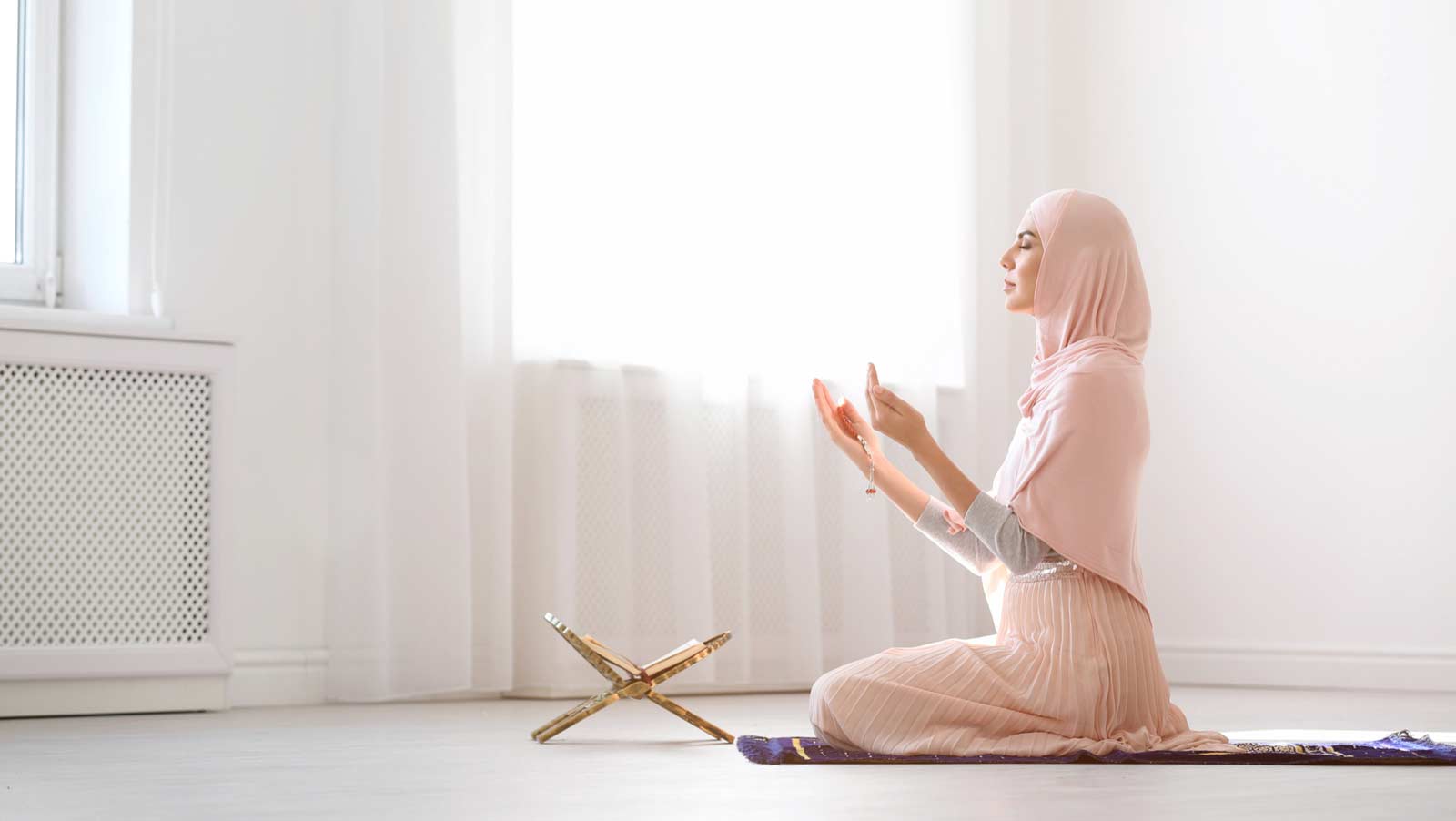“So how’s Ramadan going for you?”
It’s the perennial question on everybody’s lips at this time of Ramadan, and how are you answering it?
Insha’Allah you’re able to say that it’s going well for you and you’re achieving your targets and gaining the benefit from this blessed month. But don’t worry if you can’t say that fully yet, as the best has been saved for last!
We’re now on the final run down to `Eid, having passed through the ten days of asking for mercy and the ten days of asking for forgiveness, and now we’re into the ten days of asking for protection from the Fire. These last ten days are the most precious days of the most precious month.
The Prophet (peace be upon him) “would strive (to do acts of worship) during the last ten days of Ramadan more than he would at any other time”. (Muslim)
So this is the time to follow his beautiful example and really start to focus on your `ibadah (worship). So how can you, as a new Muslim, do that?
Be Generous in Thoughts…
“Allah’s Messenger (peace be upon him) was the most generous of all people in doing good, and he was at his most generous during the month of Ramadan.” (Al-Bukhari and Muslim)
This is the time to be generous in both your thoughts and your deeds.
It’s very easy as a new Muslim to be critical of other people, especially about other Muslim’s practice of Islam. Sometimes we get so carried away with our own striving to please Allah that we forget that Islam for others isn’t something new and exciting.
It’s something they have been living with all their lives; they may not have sought knowledge as enthusiastically as you have been doing or they may be experiencing an iman dip.
So instead of criticizing other Muslims, who find it difficult to practice Islam as well as you’d like them to, try to understand them and then try to gently encourage them.
The same goes for non-Muslims. Remember back to your pre-Islamic days and how you justified your behavior? Be generous in your thoughts of others and instead of criticizing, find an excuse and also ask Allah to guide them.
“…and there is no one who loves to accept an excuse more than Allah, and because of this He sent the bringers of good news and the warners…” (Al-Bukhari)
… and Deeds
Also strive to be generous in your deeds. Look out for any opportunities to do a good turn for your family, neighbors and friends.
This is also a great time for giving extra in charity, as its reward is increased. Many people choose this time to give their zakat al-mal (obligatory charity on wealth) away to cleanse their wealth and to get the extra benefit.
If you don’t personally know someone from the eight categories who is deserving of zakah, look out for charities that support people in your local area or country, and if there is no-one locally in need, seek out those in other countries in need.
Many charities have special Ramadan drives to take advantage of this generous time, so choose the most reliable trustworthy ones, as far as you can.
The last ten days of Ramadan is a great time to clear out your cupboards. I make it an annual habit to go through mine and give away all my unwanted and unused items or send them to be recycled.
If you have items in the back of your cupboards that you have no use for and that others might benefit from, give them away or find a local charity or charity shop to give them to.
If you have clothes that you haven’t worn for a year, especially your old pre-Islamic ones, do you really need to keep them? And don’t just give away the tatty ones; give the good stuff away too:
Never will you attain the good (reward) until you spend (in the way of Allah) from that which you love. (Aal `Imran 3:92)
I`tikaf or Qiyam
One of the best ways of really focusing on your worship is to cut out all worldly cares and just concentrate on getting closer to Allah.
As long as you make your intention for i`tikaf (spiritual retreat), your reward will be in accordance with the amount of time you spend there.
Wherever you spend your time, find a quiet place where you can bury yourself in worship of your Creator, away from the internet, TV and family worries. If you have slipped in any of your targets of reading the Qur’an in your language or in Arabic, or memorizing Qur’an or new du’a, this is the perfect time to catch up.
You can get out your du’a list and use this time to supplicate for everything you want Allah to help you or others with; especially for Him to guide your family to Islam.
And you can read inspiring books and articles and make pledges about the changes you’re going to make in your life. And just take time out to contemplate on Allah’s blessings and mercy.
Search for Laylat Al-Qadr
“Look for Laylat-Al-Qadr (The Night of Power) in the last ten nights of Ramadan, on the night when nine or seven or five nights remain out of the last ten nights of Ramadan.” (Al-Bukhari)
This is the most precious night of the precious days of the precious month. Whatever you do, make plans to spend the odd nights of the last ten (i.e. the night before the odd day, as Islamic days start from Maghrib) in deep worship, either in the mosque, with friends or at home.
Set aside all other plans so you can get the reward of this night, which is worth that of a thousand months. Imagine one night’s worship being equivalent to worshiping consistently for 83 years and 4 months! How can you afford to miss it?
This is a great night to ask Allah to keep you on the path He has guided you to, to ask Him to strengthen your faith and your wisdom, and to ask Him to help you find the path by which you can best serve Him and His Ummah. And while you’re there, add this dua’ as well:
`A’ishah (may God be pleased with her) said:
“O Messenger of Allah! What if I knew which night Laylat-Al-Qadr was, what should I say in it?”
He said
“Say: Allahumma innaka ‘affuwwun tuhibbul `afwa fa`fu `annee (O Allah! You are the One who pardons greatly, and loves to pardon, so pardon me).”
(From Discovering Islam’s archive)



